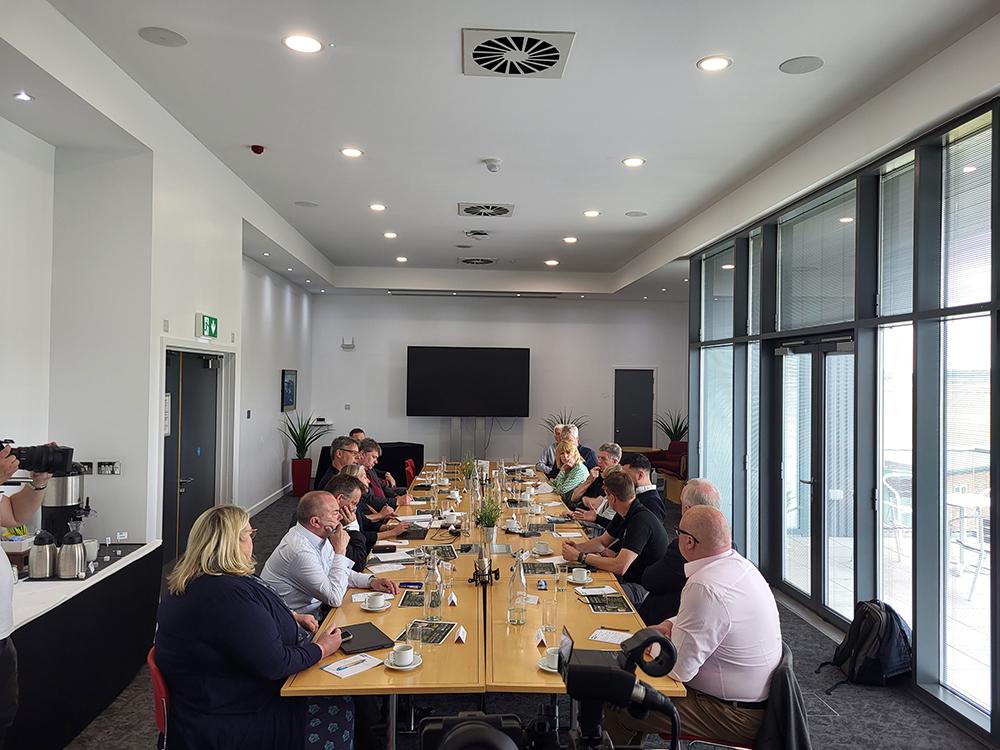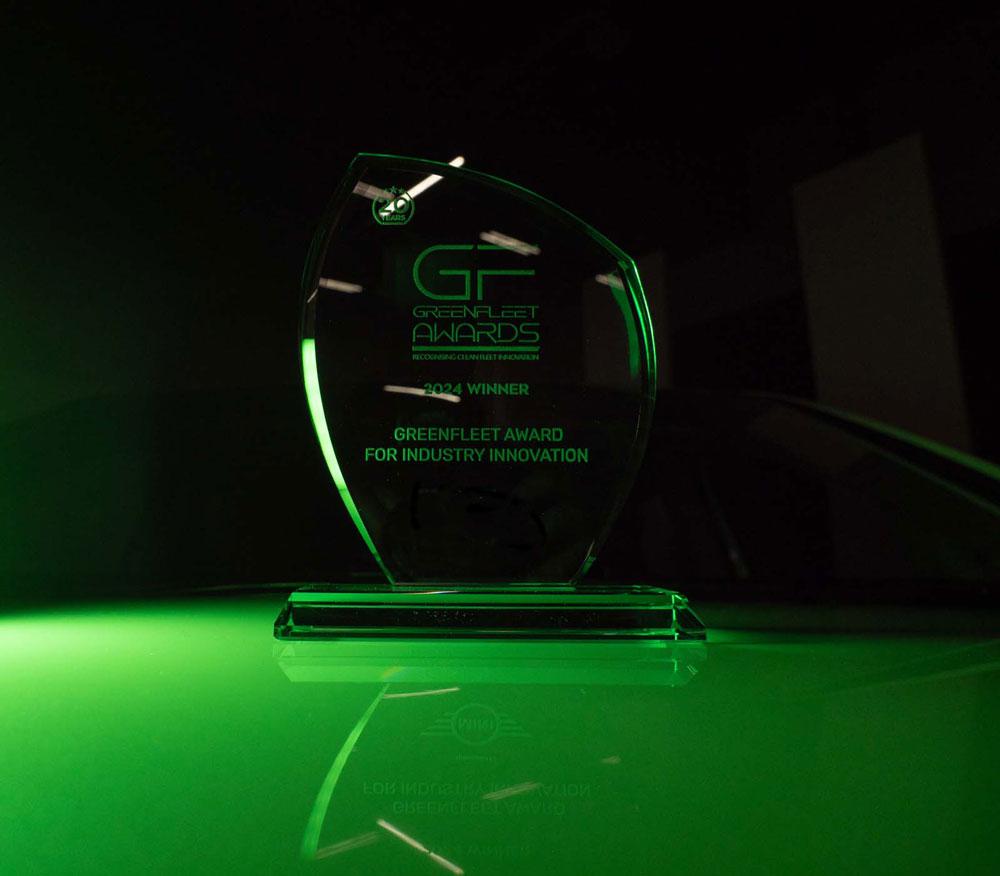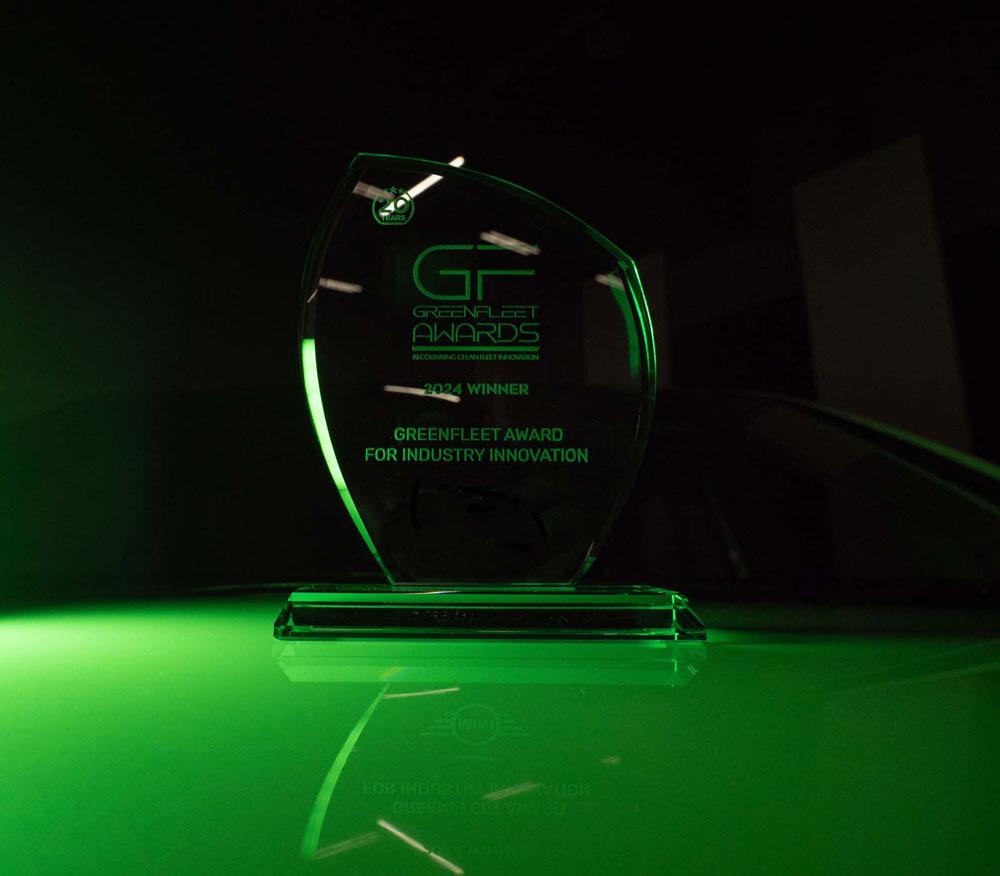GreenFleet’s roundtable at the Duxford Imperial War Museum on 1 June 2023 allowed local fleet operators to share their pain-points and successes regarding fleet decarbonisation
Duxford Imperial War Museum was the impressive setting for GreenFleet’s latest Roundtable, which took place on 1 June 2023. With historic aircraft including Lancaster, Spitfire, Vulcan and Concorde, delegates were considering whether or not their fleets were ready for take-off with their decarbonisation plans.
The roundtable was joined by special guest Naomi Green, managing director of England’s Economic Heartland (EEH) who was keen to understand the challenges and barriers that fleets are facing.
Naomi updated the roundtable on initiatives in Central and Eastern England. EEH is formed as a partnership between the DfT and local authorities, and they engage with businesses to achieve transport targets. This is particularly important in the East of England where carbon emissions from transport is as high as 42 per cent compared to a national average of 28 per cent, due to its rural make up and the high volume of freight travelling to and from multiple ports in the region. Their remit is wide; EEH is not only working on electrification of transport and associated infrastructure, but also looking at mobility hubs and rail freight to reduce emissions.
More joined up thinking needed
Whilst several local authorities in the region have received funding from the government’s Local Electric Vehicle Infrastructure Fund (LEVI), our fleets reported that each local authority is pursuing different strategies and procuring in silos. City of Londons transport group manager, Vince Dignam’s experience was that there are too many barriers – particularly if the local authority operates a single framework approach.
The introduction of additional clean air zones (CAZ) is another example where more joined up thinking is needed; Chris Ashley, head of policy at the Road Haulage Association (a Trade body representing HGV operators with 8500 members) highlighted that CAZs impose daily charges for diesel vehicles of up to £220 per day but the charging infrastructure to support HGVs is not there.
Bywaters Waste Management Services is adversely affected by the London ULEZ, as their diesel vehicles operate inside the zone, seven days per week. But Anthony Grindrod, head of logistics for Bywaters noted that the congestion charges have helped build the TCO case for electric vehicles. Anthony observed that his cost analysis for an electric caged tipper versus a diesel equivalent showed a TCO saving of £5k per year.
Focus is shifting to vans and HGVs
Despite the lack of electric vehicles of 4.25t and above, and no transit charging facilities for HGVs, decarbonisation of HGV fleets was a hot topic.
Compared to passenger vehicles, HGVs will require significantly more power, and they will need dedicated charging infrastructure. Cherwell District Council is very aware of this issue and is in the process of moving to new depot premises with more power. Dean Hedger, senior business development manager at Vital EV Solutions is ready for the challenge. He said: “Vital EV offer a range of DC charging solutions for fleets, including the innovative Kempower Charging System that offers a space saving, modular power solution that allows the infrastructure to be scaled up as the fleet grows.” And with over 2,000 EV connections already installed, Vital EV operates the same number of chargepoints as some of the largest public charging networks in the UK.
Vital EV also rent out mobile EV chargers (AC and DC), which is ideal for events, or for Operators who are trialing eTrucks. Allowing fleets to get the full charging experience before they invest in the technology.
And would funded charging infrastructure solutions be of interest? For Kuehne + Nagel, the answer is yes. Mark Waby, procurement category manager likes flat line financing as this sits well with their contract hire model.
Shared infrastructure
The question of collaboration and sharing of destination/depot charging infrastructure for commercial vehicles sparked a lively discussion. Toby Hiles, strategic partnership director at Grid Smarter Cities posed the question: “How realistic is it for fleets to share their infrastructure?”
Neil Durno from Syzygy Consulting works with commercial landlords and real estate owners, and believes that semi-public, bookable charge-points for trucks will play an important role “for 16 hours of the day there is a lot of infrastructure that isn’t being used. However public sector fleets were more hesitant; with security and health & safety being key considerations. There was consensus that access would be closely controlled, with strong collaboration with partner fleets.
Can we expect exemptions?
As net zero targets grow ever nearer, the question of exemptions crops up more often. Lack of vehicle availability and suitability are very real concerns for fleets that have net zero deadlines of 2030 (or even earlier). Consideration for exemption was specifically requested for specialist vehicles that simply aren’t available today. For example, National Highways operates a fleet of 26t winter gritters that need to be zero emission. National fleet manager, Martin Edgecox, explained: “OZEV have been very quiet on this issue, and [National Highways] have a 2027 deadline for net zero.”
In addition, specialist vehicles are frequently procured on a 10-15 year procurement cycle which means they could possibly be on fleet into the mid 2030s.
The RHA, whilst supporting the goal of net zero, agrees that exemptions may be necessary.
Linda Grave, founder and CEO at EV Driver, also raised the question of vehicle availability highlighting the recent news that Tesla will no longer be manufacturing the Model S and X in right-hand drive. With a strong influx of vehicles expected from China is must be hoped that other OEMs do not follow Tesla’s lead and withdraw/deprioritise the right-hand drive market.
Innovation in final mile
Whilst some fleets are not ready to switch to zero emission vehicles, Grid Smarter Cities is working with city-based logistics operators to reduce unnecessary miles. They have teamed up with local authorities to offer safe, bookable, kerbside parking locations in “pop-up” loading/unloading bays. Crucially these parking locations are authority approved and visible to parking enforcement teams. The net result is less time searching for a suitable parking space, less miles travelled, less local emissions and less risk of getting a penalty charge notice.
Salary Sacrifice continues to grow
With us on the day was Andrew White from Tusker, one of the largest company car and salary sacrifice providers in the UK. With over 20 years’ experience, Tusker offers carbon neutral solutions to both the public and private sector. What was striking was that many of the fleets around the table, including Kuehne + Nagel and Kier Group, are already successfully operating salary sacrifice schemes, and others were actively looking into setting up a scheme.
With the continued rollout of clean air zones across the country, many employees may find their old vehicle is not compliant. And for shift workers, such as London Fire Brigade, Clive Robinson noted: “It is not always possible to use public transport in a 24/7/365 operation.”
Salary sacrifice offers an accessible solution to get staff into zero emission vehicles. However, if you are thinking of rolling out a salary sacrifice scheme, don’t wait too long as the very attractive incentives will not last forever.






